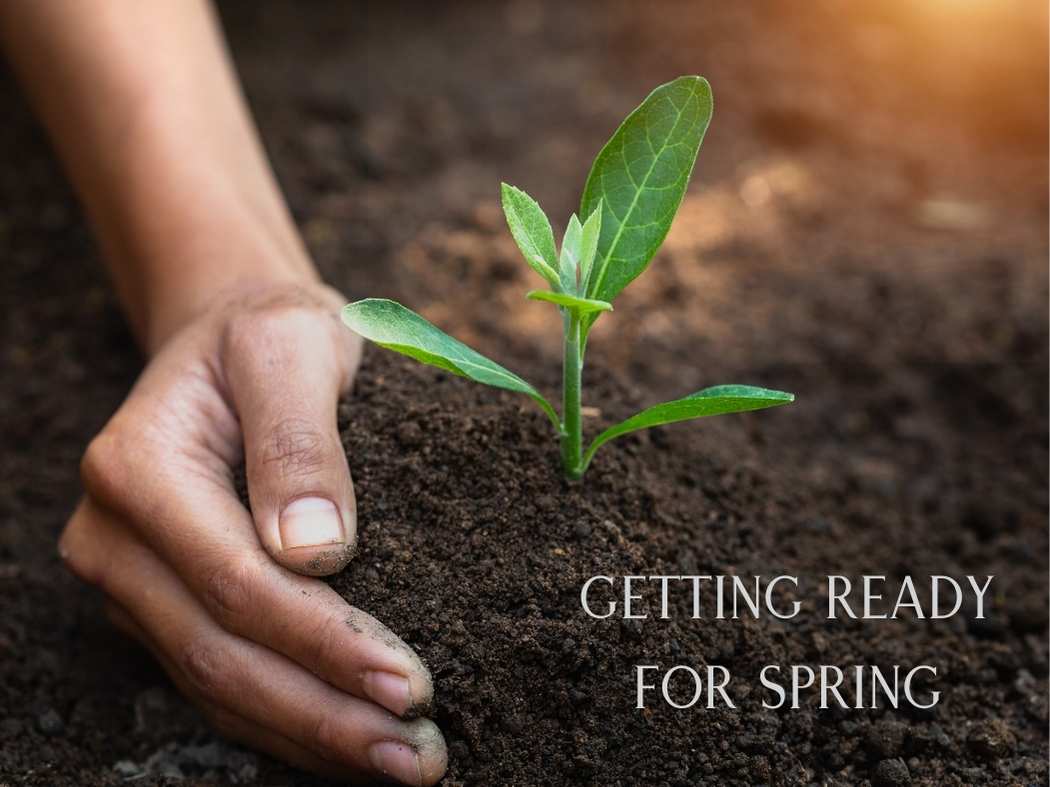Spring Planting: Understanding Soil Types and Which Plants Grow Best on Them
Have you ever thought about how important soil is for your garden? It’s not just dirt – it’s the lifeblood of your plants! The right soil provides essential nutrients, air, and water, making a huge difference in how well your garden grows. There are six main types of soil, and understanding which one you have can help you choose the best plants and know what amendments might be needed.
1. Loamy Soil
Loamy soil is a balanced mixture of clay, silt, and sand.
- Pros: Great structure and drainage; retains moisture and nutrients.
- Cons: Acidic; needs nutrient supplementation.
- Thrives: Climbers, vegetables, berries, root crops.
- Struggles: Tomatoes (post-seedling), green beans, late-growing cabbage, brassicas, cacti.
2. Chalky Soil
Chalky soil is stony, alkaline, and well-draining.
- Pros: Drains well; easy to work.
- Cons: Alkaline; leaches iron and magnesium.
- Thrives: Spinach, beets, sweet corn, cabbage, lilacs.
- Struggles: Blueberries, tomatoes.
3. Peaty Soil
Peaty soil is dark, spongy, and nutrient-rich.
- Pros: Rich in nutrients; heats up quickly.
- Cons: Highly acidic; retains water.
- Thrives: Root crops, salad greens, brassicas, lantern trees, witch hazel.
- Struggles: Tomatoes, peppers.
4. Silty Soil
Silty soil feels soft and holds moisture well.
- Pros: Holds moisture and nutrients; easily cultivated.
- Cons: Compacts easily; potential waterlogging.
- Thrives: Most veggies, climbers, perennial plants, willow, birch, dogwood trees.
- Struggles: Carrots, parsnips.
5. Sandy Soil
Sandy soil is gritty, quick-draining, and dries out fast.
- Pros: Drains well; warms up quickly.
- Cons: Loses nutrients quickly; less fertile.
- Thrives: Root crops, lettuce, strawberries, corn, squash.
- Struggles: Cabbage, broccoli, peas.
6. Clay Soil
Clay soil is dense and nutrient-rich but has poor drainage.
- Pros: Retains water; nutrient-rich.
- Cons: Waterlogged; hard to cultivate.
- Thrives: Summer crops, fruit trees, ornamental trees, perennials.
- Struggles: Carrots, parsnips, soft berries.
Understanding your soil type is crucial for a thriving garden. With different soil types, knowing the characteristics of your soil helps you select the right plants and necessary amendments. Adjusting pH levels, adding nutrients, improving drainage, or retaining moisture can transform your garden’s potential. Testing soil texture and characteristics guides these improvements, ensuring your plants get the best start and chance to flourish.
By paying attention to your soil, you can create an optimal environment for your plants, leading to a more bountiful and healthy garden.

 Facebook
Facebook
 X
X
 Pinterest
Pinterest
 Copy Link
Copy Link
